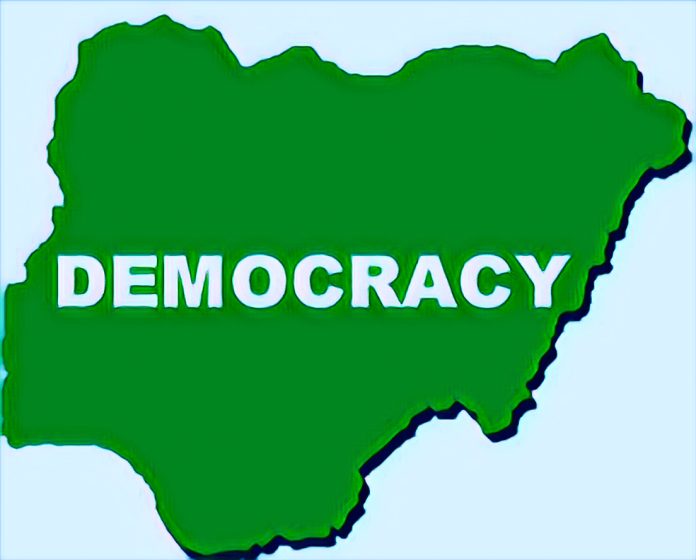KEY POINTS
- Nigerian parties lack consistent ideological foundations.
- Electoral reforms could reduce patronage reliance.
- Inclusive governance boosts representation for youth and women.
Nigeria’s political landscape, shaped by a rich yet turbulent history, remains pivotal to the country’s democratic aspirations since its independence in 1960.
Political parties, especially the dominant People’s Democratic Party (PDP) and All Progressives Congress (APC), are fundamental to this structure, guiding governance, policy direction, and citizen engagement since the nation’s return to civilian rule in 1999.
Emerging initially from colonial-era factions, Nigeria’s parties have evolved through cycles of ethnic alliances, military coups, and democratic rebirth. Yet, despite their significance, these parties often lack consistent ideological foundations, with fluid policy stances that reflect Nigeria’s complex socio-political dynamics more than clear-cut visions.
Strengthening Nigeria’s political parties for inclusivity
Today, the PDP and APC continue to battle for influence, while minor parties like the African Democratic Congress (ADC) and Alliance for New Nigeria (ANN) play modest roles. These parties are instrumental in representing diverse interests and providing voters with a choice in leadership.
However, significant challenges, including political fragmentation, limited ideological direction, and the legacy of centralized power, often hinder their effectiveness. Strengthening Nigeria’s political parties could enhance the democratic process, fostering accountability, transparency, and inclusive governance—a critical step toward addressing Nigeria’s diverse political, ethnic, and economic needs.
Challenges facing political parties
Despite their critical role, Nigerian political parties face numerous challenges that hinder their effectiveness. Internal conflicts and factionalization within parties often lead to splinter groups, weakening their unity and coherence.
Electoral violence and malpractice are also significant issues, as parties often become involved in or fall victim to disruptive election practices. Another challenge is the lack of ideological clarity, with many parties criticized for prioritizing personal interests over genuine ideological commitments.
Furthermore, the influence of political “godfathers” and patronage systems erodes party independence, leading to a culture of patronage politics where allegiance to influential individuals outweighs public accountability.
Opportunities for improvement
To strengthen Nigeria’s democratic institutions, political parties need reforms that address these longstanding issues. Electoral reforms, such as those proposed to enhance the independence of the Independent National Electoral Commission (INEC), are essential to curbing election malpractices.
Transparent party financing mechanisms could also reduce reliance on patronage and ensure that parties remain accountable to the electorate. Increasing the inclusion of youth and women in political processes could promote diversity, representation, and new perspectives within parties.
Additionally, shifting campaigns from personality-based to policy-focused agendas can foster more constructive public discourse, encouraging issue-based politics that genuinely address citizens’ needs.
Scenarios
Recent elections in Nigeria provide insights into the performance of political parties and their impact on democracy. In 2015, the APC ran a campaign that promised sweeping reforms, especially in the areas of security, the economy, and anti-corruption, leading to a historic victory that unseated the PDP.
However, evaluating the APC’s progress since then reveals both achievements and unmet promises. In the 2019 election, the PDP’s presidential primaries generated significant public interest, highlighting the party’s internal democratic processes.
Minority parties, such as the ADC, have also contributed by advocating for democratic principles and urging reforms within the political landscape.
Statistics
Voter turnout in Nigeria has been a point of concern, with only 35 percent of registered voters participating in the 2019 presidential election, according to INEC.
Nigeria’s complex party system once included as many as 91 registered parties (2020), though many are inactive or minimally influential. Women’s representation in the National Assembly stands at just 6.7 percent, while youth representation is also limited at 13.4 percent, according to the National Bureau of Statistics. These statistics reflect the need for increased efforts toward inclusive governance, ensuring that Nigeria’s political institutions reflect the diversity of its population.
Political parties play an indispensable role in Nigeria’s democracy by representing citizens, shaping policy, recruiting leaders, and holding the government accountable. However, to effectively fulfill these roles, Nigerian political parties must embrace reforms that promote transparency, inclusivity, and ideological clarity.
Strengthening these aspects will enable political parties to build public trust, inspire citizen engagement, and ultimately, contribute to a more robust democratic system. With continued reforms and a focus on accountability, Nigeria’s political landscape holds the potential for a bright future, where political parties drive meaningful democratic growth and foster a stable, representative government.



